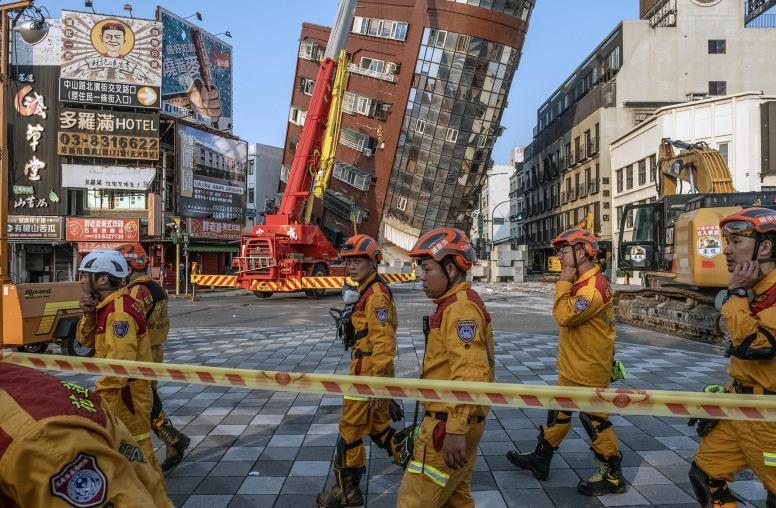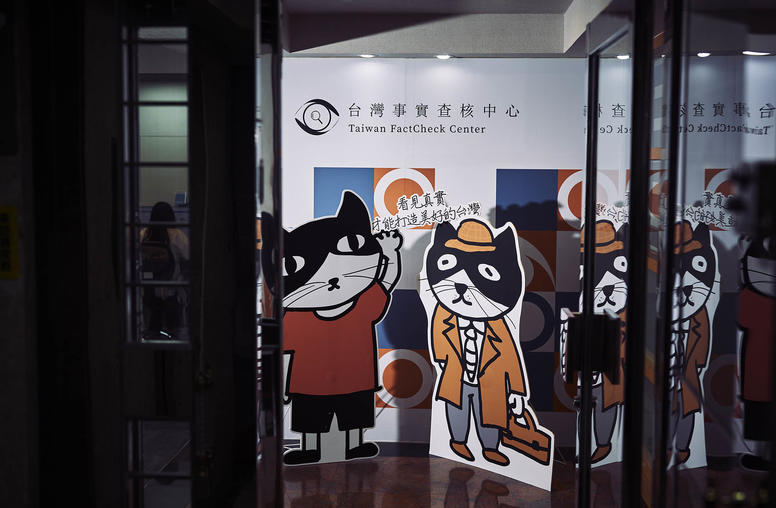Publications
Articles, publications, books, tools and multimedia features from the U.S. Institute of Peace provide the latest news, analysis, research findings, practitioner guides and reports, all related to the conflict zones and issues that are at the center of the Institute’s work to prevent and reduce violent conflict.

Moldova: As Russia Fuels Conflict, Could Churches Build Peace?
Russia’s escalating campaign to block Moldova from joining the European Union reflects a weakening in Eastern Europe of a longstanding Russian lever of regional influence: its Orthodox church. A number of Moldovan Orthodox priests and parishes are campaigning to withdraw their nation’s churches from two centuries of formal subordination to Russia’s church, and Moldova’s senior prelate has bluntly condemned his superior, the Russian Orthodox Church patriarch, for supporting Moscow’s war on Ukraine. As conflict escalates this year over Moldova’s future, advocates of European democracy and stability might strengthen both by supporting dialogue to reduce conflict between Moldova’s historically Russia-linked church and its smaller rival, subordinate to the Orthodox hierarchy in neighboring Romania.

After India’s Surprising Elections, What’s Next for Modi’s Foreign Policy?
Widely expected to cruise to a third-straight majority in India’s parliamentary elections, Prime Minister Narendra Modi’s Bharatiya Janata Party (BJP) instead lost ground and must now rely on its National Democratic Alliance partners, especially the Janata Dal (United) party and the Telugu Desam Party, to form a coalition government. While the stunning results will have immediate consequences for Modi’s domestic agenda, foreign and national security policies are not top priorities for India’s new parliament. Still, the political changes associated with coalition rule and the BJP’s unanticipated electoral setback could affect India’s international relationships in important ways.

Three Troubling Takeaways on U.S.-China Relations from the Shangri La Dialogue
The recently concluded 2024 Shangri La Dialogue in Singapore provided another useful opportunity for senior U.S. and Chinese national security officials to engage in face-to-face bilateral discussions and interact with officials and experts from other states. While these engagements have value in theory, they highlight three persistent problems in the practice of U.S.-China relations. First, the United States and China tend to talk past each other. Second, the United States and China have dissimilar systems, which makes identifying and engaging with appropriate counterpart officials very difficult. Third, the United States and China possess fundamentally different understandings about the role of third countries in managing confrontation and mitigating conflict.

Keith Mines on the Latest from Haiti
While Haiti’s Transitional Council has appointed a prime minister to lead a temporary government and the Kenyan-led international security mission is expected to deploy soon, “[Haiti’s] gangs are still pretty strong,” says USIP’s Keith Mines. “There’s really going to be a fight for power … over the coming months.”

Five Factors Shaping the Future of Egypt-Israel Relations
The Gaza war has strained Egyptian-Israeli relations to an unprecedented level and raised questions about the future of their 1979 peace treaty that has been a cornerstone of Arab-Israeli peace. U.S. officials met recently in Cairo with their Israeli and Egyptian counterparts against a backdrop of mutually diminishing confidence between the two parties, particularly following Israel’s ground offensive in Rafah. This comes on the heels of a shooting incident between Israeli and Egyptian forces that left at least one Egyptian soldier dead, and Egypt joining South Africa’s case against Israel at the International Court of Justice (ICJ). Along with Qatar, Egypt is a key broker in the current Israel-Hamas cease-fire efforts and engages in extensive security cooperation with the U.S. and Israel.

Vietnam’s Paradox: Domestic Tumult, Diplomatic Consistency
Last September, President Biden and Vietnamese General Secretary Nguyễn Phú Trọng announced a new Comprehensive Strategic Partnership, raising U.S.-Vietnam relations to their highest level ever. Yet domestic politics in Vietnam have been rocky, with numerous leadership changes and increasing restrictions on civil society — raising uncertainty within Vietnam’s usually stable political system.

Boiling the Frog: China’s Incrementalist Maritime Expansion
For over three decades, Beijing has deployed an initially slow but now accelerating campaign to degrade Philippine maritime rights and access in the West Philippine Sea. This long-term effort has been characterized by often seemingly benign actions and even conciliatory rhetoric interspersed with escalatory words and deeds designed to test the thresholds of neighbors and allies. Today, China’s rising aggression in the West Philippine Sea and broader South China Sea has pushed the region to the precipice of conflict.

Venezuela’s Election Outcome Isn’t a Done Deal Just Yet
With less than two months before Venezuela’s presidential election, President Nicolas Maduro faces a stark choice. Should he be beaten at the polls, as opinion surveys suggest he will be, Maduro could concede defeat and negotiate a transfer of power with safeguards against legal persecution. Or he could try to steal or invalidate the election. Most observers assume Maduro will opt for the latter, but doing so could put him at even greater personal risk.

Stress Test: the April Earthquake and Taiwan’s Resilience
On April 3, Taiwan experienced its most powerful earthquake since 1999. The earthquake struck the east coast county of Hualian and was felt across the entire island, including the capital Taipei City. At least 18 people were reported dead and more than 1,100 people were injured. Taiwan’s high level of earthquake preparedness stems from its familiarity with seismic activity and most importantly, lessons learned from several catastrophic earthquakes over the past two decades.

Taiwan’s Democracy Prevailed Despite China’s Election Interference
The election of Lai Ching-te, or William Lai, as Taiwan’s next president despite firm opposition from China is a positive sign that democracy is alive and well on the island nation. Nevertheless, the fact that Lai, whom China has deemed a “troublemaker” and “separatist,” won by a narrow margin, and his Democratic Progressive Party (DPP) lost its majority in the Legislative Yuan, will be seen in Beijing as an acceptable outcome, as it restricts Lai’s ability to advance his agenda and reveals the limits of the DPP’s appeal.